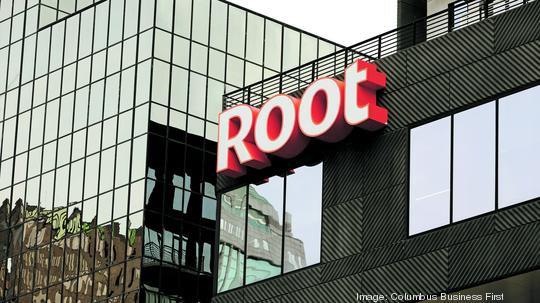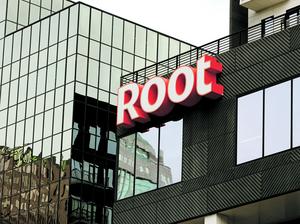
To end a slide that started shortly after its IPO, Root Inc. will consolidate shares after markets close Friday in a 1-for-18 reverse stock split approved by shareholders and its board.
The Columbus digital auto insurer narrowed losses in the first half of the year but sold fewer policies after slashing ad spending, according to its second-quarter report. Root Insurance now has fewer than 300,000 policyholders, down 20% from the same time last year.
Expect that trend to continue the second half of the year as Root (Nasdaq: ROOT) aims to drive down the ratio of claims losses to premium to a point where it's prudent to seek customer growth again, co-founder and CEO Alex Timm told analysts in a recorded conference call Tuesday.
"We are entirely still focused on protecting the business," Timm said.
One bright spot, the company said, is embedded policies offered to Carvana Inc. customers at checkout. Those account for nearly one-third of new business.
After releasing the first version in October, Root launched a revised product at the end of July, cutting the screens customers need to click through from 26 to three.
The speed of development was a "monumental" achievement by teams from both companies, COO and Chief Revenue Officer Dan Rosenthal said on the call, and will lead to more embedded sales partnerships.
"What we have accomplished with Carvana has been transformational for our business and people are taking notice," Rosenthal said.
Root filed 30 rate increases with state regulators so far this year, leaning on its technology to automate many decisions and act faster than competitors, Timm said. Many of those increases were late in the second quarter, so the effect hasn't yet turned up in loss ratios until customers start paying those higher bills.
Higher rates, job cuts in January and slashed advertising cut operating cash burn in half compared with the same time last year, CFO Rob Bateman said.
"We are making progress against the goals we set out a year ago and we are not finished," he said. "We are doing everything we can to conserve cash."
The net loss is $166 million through the first six months of the year, compared with $278 million at this point last year. The company has nearly $700 million in unencumbered capital remaining, according to a letter to shareholders.
Root debuted at $27 a share in its October 2020 IPO – but the price plummeted since then along with many of its tech peers that went public around the same time. The company was further battered by the impact supply chain issues and inflation have had on the insurance industry, with skyrocketing costs for repairs and replacement vehicles.
The share price has been below $2 since early April. Shareholders in June authorized the directors to approve the reverse split, which they did on Aug. 1. The consolidation will reduce the number of common Class A shares to 9 million from 161 million, and Class B – shares with more voting power held by early VC investors – to about 5 million from 94 million, according to its quarterly report.
The move will not affect percentage ownership, but could eventually lead to dilution, according to the proxy, because the number of shares authorized for release in the future stays the same.
Analysts in a half-hour conference call focused questions on rate-setting and projections for customer growth, asking nothing about the reverse split.






